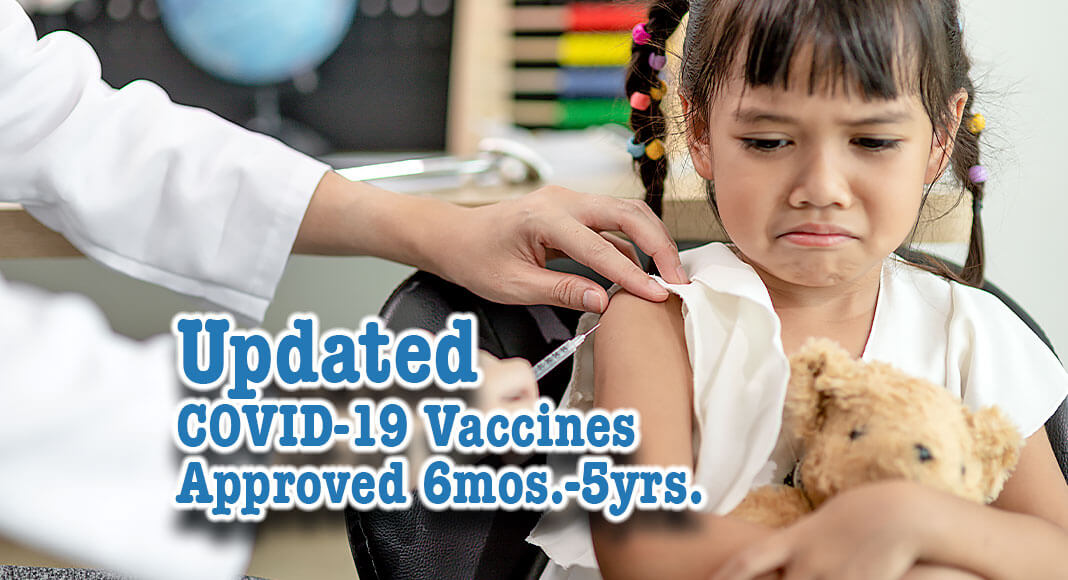
Mega Doctor News
CDC expanded the use of updated (bivalent) COVID-19 vaccines for children ages 6 months through 5 years. Children ages 6 months through 5 years who previously completed a Moderna primary series are eligible to receive a Moderna bivalent booster 2 months after their final primary series dose. Children ages 6 months through 4 years who are currently completing a Pfizer primary series will receive a Pfizer bivalent vaccine as their third primary dose.
Updated COVID-19 vaccines are formulated to protect against some of the more recently circulating viruses.
Most importantly, COVID-19 vaccines are critical to providing ongoing protection as immunity wanes and the virus continues to mutate.
The vast majority of children in this age group have not received any doses of a COVID-19 vaccine. CDC is working to increase parent and provider confidence in COVID-19 vaccines and improve uptake among the 95% of children who are not vaccinated or who have not completed the COVID-19 vaccine primary series. Parents should talk to their child’s health care provider to ensure their child is up to date on their COVID-19 and other vaccines.
Information Source: CDC









